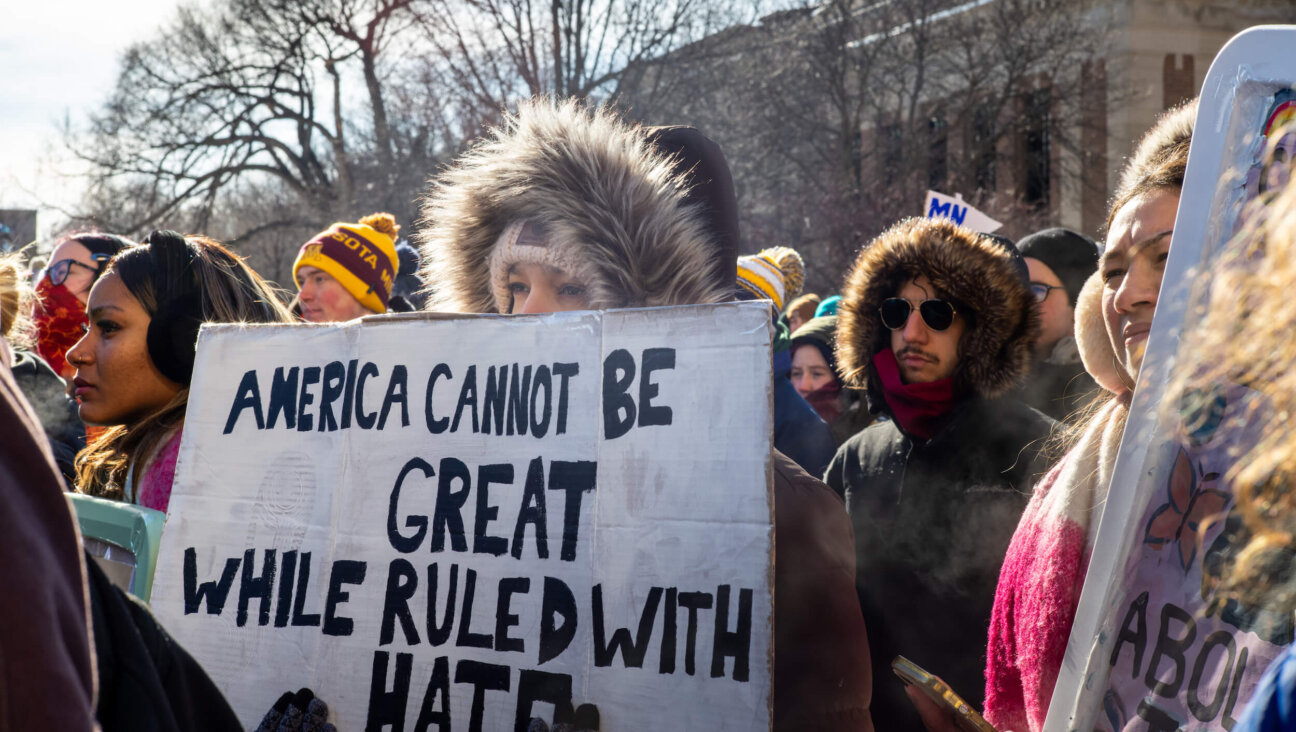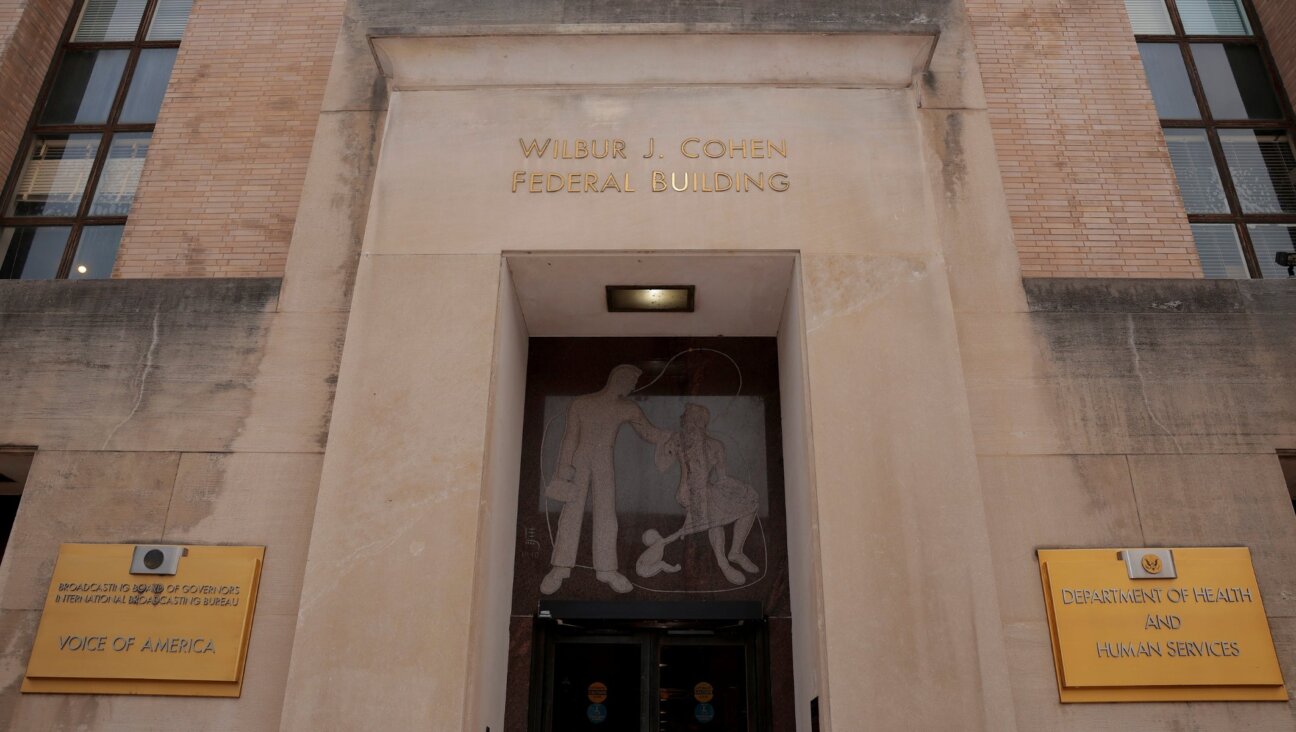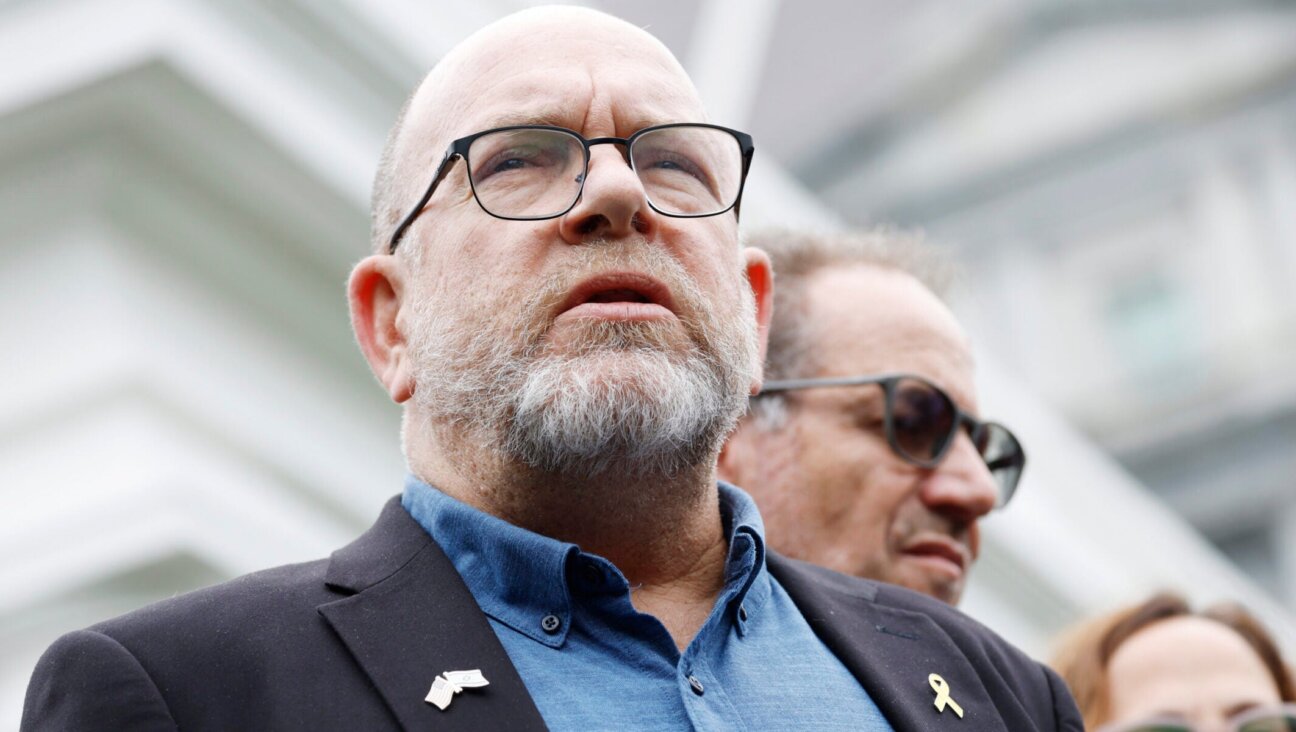Anti-Semitism Is on the Rise From Both Sides. Just Not How You Think.

Image by Getty Images
Appearances notwithstanding, this year’s presidential election campaign did not introduce anti-Semitism to America. It did, however, bring the ancient hatred out of the shadows and into the spotlight in a way we haven’t seen in years. To paraphrase Abe Foxman, the sewer covers are off.
It’s been a sobering time. Still, along with widespread alarm among Jews and others, there’s a sense that we’ve learned some important lessons.Unfortunately, much of what we think we’ve learned is wrong. The polarization and rage of American politics is blinding too many of us to the realities around us.
This much is generally agreed: Anti-Semitism is on the rise in America and throughout the West. It’s been growing steadily for a decade or two, after decades of decline.
Here’s something less acknowledged, though it should be obvious: Anti-Semitism exists today in two primary strains, each with its own distinct roots and character. One strain is the old, familiar racial and religious Jew hatred that stalked the Christian West for centuries. Over the past few generations it was banished to the fringes of the far right. Now it’s re-emerging.
The other strain is the hatred, partly religion-based but mostly political, faced by Israel and its closest allies, beginning with Diaspora Jewish advocacy groups. This hostility traces its roots to the Arab and Muslim world, which almost unanimously objected to the Zionist enterprise from its beginning a century ago. Much of the driving energy for the hostility today comes from elements that identify as Muslim. But it’s rapidly spreading through the Western left.
Both strains — far-right Jew-hatred and Muslim/leftist Israel bashing — are real. Both are dangerous. Both are on the upsurge. But caution is advised. Some of what looks and feels like anti-Semitism is not hatred but something else: sometimes sharp disagreement, especially on the left, with Israeli policies and actions; sometimes objection on the right to the social agenda of organized Jewish advocacy.
Both strains of anti-Semitism, right wing and Muslim/left wing, surfaced as topics of concern in this year’s presidential race and transition. Much of the debate focused on the personalities of two political figures who were held up by critics from the opposing camp as embodiments of the two strands of anti-Semitism: Democratic Rep. Keith Ellison of Minnesota and Trump campaign chief Steve Bannon.
In a way, both men are perfect avatars of the rising anti-Semitism that opponents perceive in their respective camps. Ellison, one of just two Muslim members of the House of Representatives, is now a lead candidate to chair the Democratic National Committee. Right-wing opponents see his candidacy as evidence that Democrats have abandoned the Jews. Bannon, designated chief political strategist in the Trump White House, is a former head of the far-right Breitbart.com website, which serves as a platform for the “alt-right,” a grab bag of white radical right extremist groups. Liberal opponents see Bannon’s prominence in the campaign as evidence of an anti-Semitism infecting the Trump wing of the Republican Party.
Awkwardly, holding up Ellison and Bannon as exemplars of a newly resurgent anti-Semitism bumps up against the fact that neither of them is actually anti-Semitic. The cases against both are almost comically flimsy. In both situations, the accusation is based on a handful of cherry-picked snippets drawn from long careers that bend toward friendship with Israel and the Jews.
Bannon was a founding member of Breitbart.com, a news site conceived by its founding heads, Andrew Breitbart and Larry Solov, both Jews, as a conservative platform for uncompromising defense of Israel. When Bannon took over in 2012, he opened the site to “alt-right” contributors, some of whom were writing anti-Semitic material — on other websites. The sole direct evidence of anti-Semitism on Breitbart is a May 2016 article whose headline called neoconservative journalist Bill Kristol a “renegade Jew.” The article, by right-wing Jewish gadfly David Horowitz, attacked Kristol for opposing Trump and thereby harming Jewish interests. “Renegade Jew” referred not to the Jewish place in America but to Kristol’s place in the Jewish community.
As for Ellison, he was loosely associated for several years in the 1990s with the notoriously anti-Semitic Louis Farrakhan of the Nation of Islam. Critics cite a pair of articles he wrote in a student newspaper in 1989 and 1990, defending Farrakhan against the charge of anti-Semitism. Ellison admitted in a 2006 open letter to the Jewish community that he was too slow recognizing Farrakhan’s bigotry. Since entering Congress he’s been a consistent defender, even before Muslim audiences, of a two-state Israeli-Palestinian peace, the U.S.-Israel alliance and Israel’s right to self-defense.
The emergence of anti-Semitism in the 2016 campaign could have prompted an important discussion about the safety and security of the American Jewish community. Instead Republicans and Democrats alike tried to tar opponents by association with fringe Jew bashers while denying or ignoring the problem in its own camp.
In effect, the walls of mutual hostility and suspicion that cut through the American body politic — and, in slightly different form, through the Jewish community — have left much of the public believing that anti-Semitism is a unitary problem that exists over there, on the other side, while they are unable to see the parallel problem on its own side. The denial is not just shortsighted but also dangerous. Both strains of anti-Jewish ideology have been responsible for multiple deadly attacks specifically targeting Jews and Jewish institutions on U.S. soil over the past quarter-century, since the uptick began. In fact, according to my own research via FBI data and online newspaper archives around the country, the two strands, far-right and anti-Israel, are both implicated in roughly the same number of such attacks during that period.
The line separating sharp, activist opposition to Israeli policy from hatred of its existence isn’t always easy to see. Nor is it hard and fast. Fifty years of the Israeli military ruling over millions of Palestinians without citizenship or political rights are generating a time bomb of Western-liberal frustration. Palestinian activists exploit the frustration to pressure Israel and advance their cause. It all becomes devilishly complicated: There’s hatred of Israel because of what it is. There’s also hatred fanned by what Israel does.
At the same time, there’s an element of right-wing American anti-Semitism that is not prejudice but actual policy opposition to the social agenda of the Jewish advocacy community. American Jews have worked in an organized fashion for the past century to promote a set of broadly liberal principles, including pluralism, minority rights, church-state separation and international engagement. Significant strains of conservatism object to some or all of those principles. Some conclude that the Jewish community is their adversary. Others avoid mentioning Jews, fearing they’ll be accused of anti-Semitism.
Here, too, the line between hatred of Jews and opposition to Jewish policy is not impermeable. There are conservative critics of Israeli policy who bridle at the taboo on open criticism and let their disagreements morph into hostility. Like Israeli self-defense, Diaspora Jewish hypersensitivity is sometimes capable of fanning the very hostility it is meant to deter.
J.J. Goldberg is the Forward’s editor-at-large, follow him on Twitter, @JJ_Goldberg

















